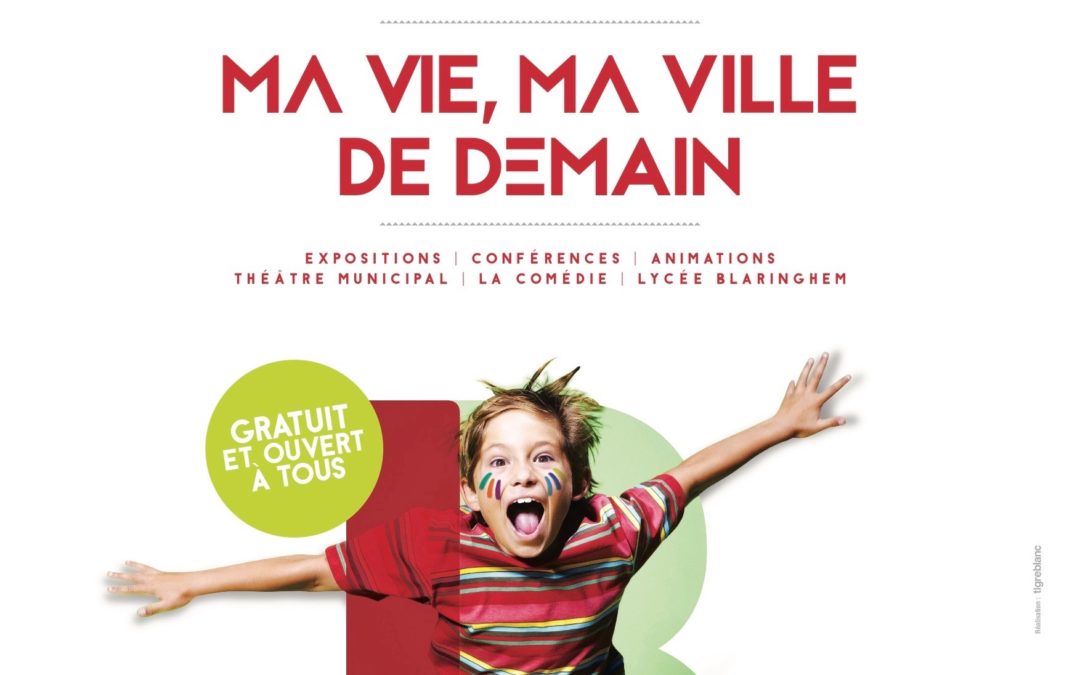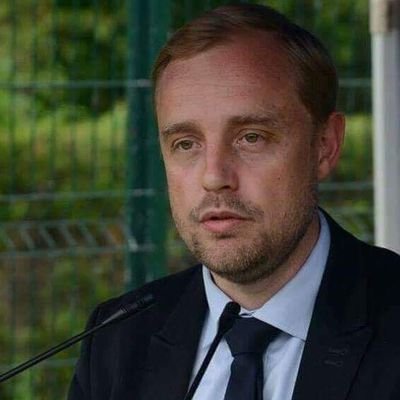

The call for projects was launched at the end of June and ended on September 12th. It was extremely fruitful, producing responses from 67 startups from France, England, Germany, Belgium and even the United States. After intense debate, six teams were shortlisted and asked to present their project during the "My life, my city of the future" smart city event that was held on September 22-23 in Bethune. The six teams were:
At the end of the pitch session, the committee selected 3 winners:
Now, all that’s left to do is to launch the projects. The city of Bethune and ENGIE are working together to provide a support structure for these three startups during their first weeks and months in Béthune.
Olivier Gacquerre, Mayor of Béthune, was kind enough to answer our questions about the city’s approach to the smart city and the choice of winners.
Q - The city of Bethune decided to address some current societal and technological challenges through a smart city approach that puts citizens at its core. Can you tell us about the key points of this approach?
Our ambition – to make Béthune a smart city – is not about duplicating what works in big cities but rather about starting from a macro vision that fits the scale of medium-sized cities.
For us, this approach is based on two major elements:
The "My city, my life tomorrow
" forum held on September 22-23, where we chose the winners of the call for projects, was an opportunity to get the rest of our stakeholders on board, including those from the municipality, the economic world, citizens, and associations.
Our goal is to make our municipality a demonstrator and a playground for the average size smart city
. The demonstrator will involve solutions that suit us, as well as solutions that we won’t necessarily adopt but which we are willing to test. We want to co-creator solutions that companies could come to try and develop further afterwards.
Our goal is to make Béthune the showcase of the mid-sized smart city and to allow other cities curious about the concept to come and see how it works, "make their market" or get inspired.
Q - GetItDone, the winner of the call for projects, also received the audience favorite award. Their proposal involves using the Bethune water station as space for energy storage. What attracted you to this project?
We are very proud of how successful this call for projects is. We selected 6 finalists, whose projects aligned with out seven pillars. Three of them were selected following the pitch session.
GetItDone is the only one that had a detailed investment project with numbers on it. The financial concept played in his favor. And his project was conceived specifically for the city of Bethune
, using the old water station. A century ago, Bethune was one of the main inland river ports in France and the water station was the place where we barges were docked and repaired.
GetItDone’s project will provide a new meaning and a new use for this space. It really appealed to us because it was totally tailored to us. It’s not a ready-made solution, but Patrick van Male
, the founder of GetItDOne, wants to build it here, on the ground, to get to where we want to be.
In short, it’s very "smart" to start by analyzing our assets, and then thinking about how they can be used.
The second winner, Totem Mobi
, focused on mobility in the city center, which is one of the important aspects of the smart city. It’s a car sharing solution for electric vehicles.
The third-place winner, Icohup, appealed to our goal of making Béthune a demonstrator of the smart city. Mayors are increasingly subject to more and more rules and concerns about the safety of property and people.
Municipalities are required to have a PCS (Plan for Safeguarding People and Goods) that accounts for all of a local area’s risk factors, including technological ones. And all of these factors are interconnected.
With Icohup and its connected sensors in mind, we began thinking about working together to design a services offering for medium-sized cities, a unique tool. It would send alerts and trigger procedures
or processes - at the end of which, I would ideally like to see the creation of "citizen and municipal reserves".
For example: imagine a flood risk alert.
Throughout the district, everyone would know what he or she has to do, the measures to be taken and the actions to be carried out. This project allows us to move towards a collaborative, contributive way of living together, a new form of democracy, a new way of living the city. Citizens no longer passively wait emergency services to come, but instead get warned of the risks upstream, and get empowered to take action.
It’s about the transition from consumption (rescue) to prevention and anticipation – with all the collective benefits you can imagine. And using connected sensors makes sense as part of this.
Q-Given what it does, ENGIE is a major partner of cities. Beyond this call for projects, what are you expecting from ENGIE in terms of support towards making Bethune a sustainable, intelligent and collaborative city?
I would like to go a step further with ENGIE and examine the possibility of setting up a convention to work on the major subject of mobility – a typical case of paradigm shift.
Of course, how we get around in the future will look different from today and will be based less on infrastructure than on usages.
But at the medium-sized city scale, mobility is a complicated problem. We need to have transportation for the city itself but also for connecting the city and its periphery. The current answer to this problem is the automobile. And our cities are being stifled by traffic and parking problems
and some of the problems bigger cities have. So it is absolutely necessary that we rethink mobility on the scale of the wider area and even the region, which in our case covers 6 million people with several economically attractive clusters.
Working in partnership with ENGIE will be helpful in this regard. What we need is not to identify innovative solutions, but to approach mobility in medium-sized cities and the issue of how to drive change. To distinguish what is really about infrastructure and what is really about usages and behavior, to find some answers to questions like:
This macro vision would also make it possible to extend our policies beyond electoral deadlines, and get citizens and other local stakeholders involved in other modes of governance, collective thinking and planning and in general in transformation and change.
Of course, we have launched major infrastructure projects in Béthune. We have bus projects serving the whole area, the renovation of the train station, a high speed train station, a TERGV project – lowering the intervals between trains on the TER line, particularly the Béthune-Lille link, smart parking... All of which we will discuss with ENGIE, to make Béthune a sustainable, innovative and collaborative city.
Sign up for the ENGIE Innovation Newsletter